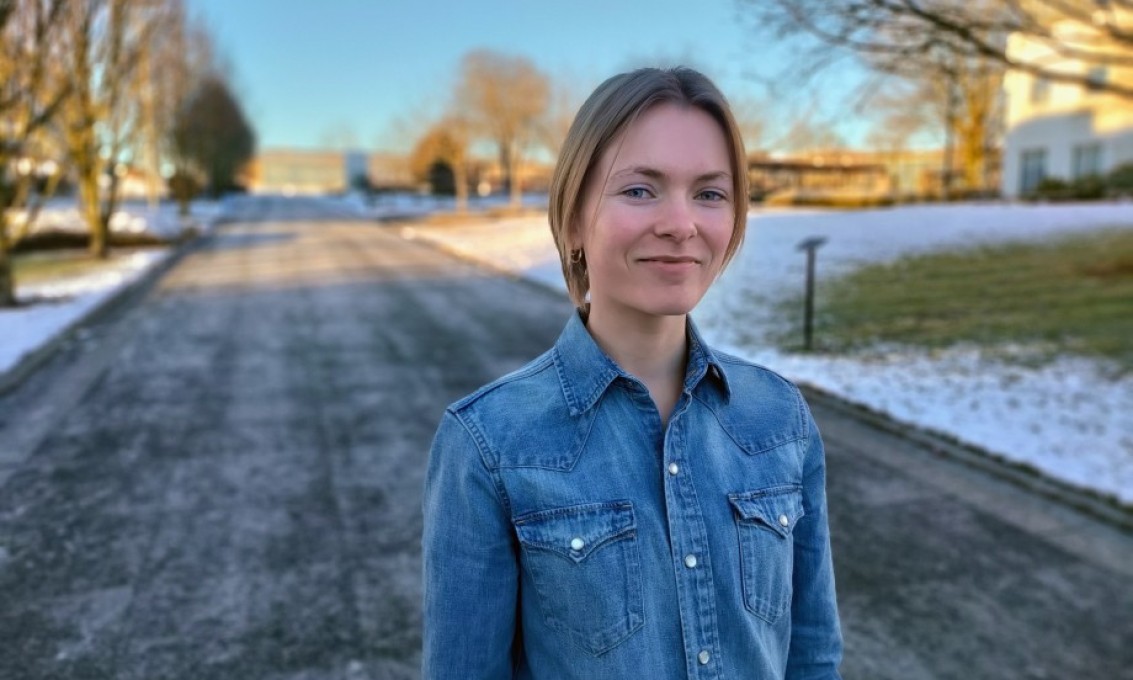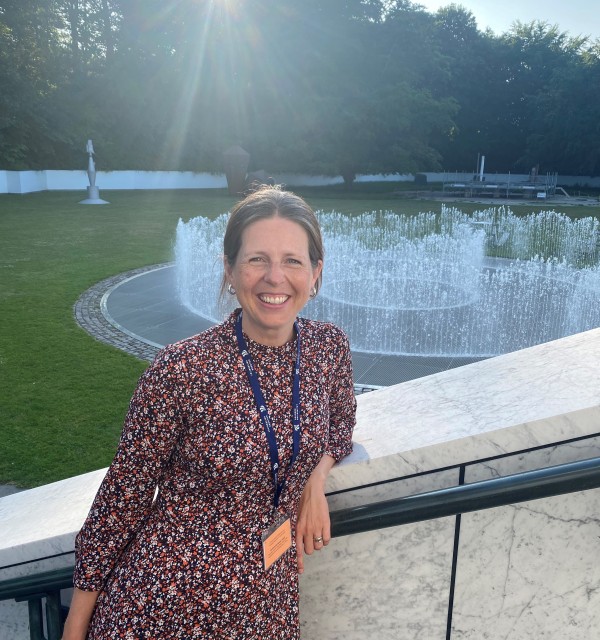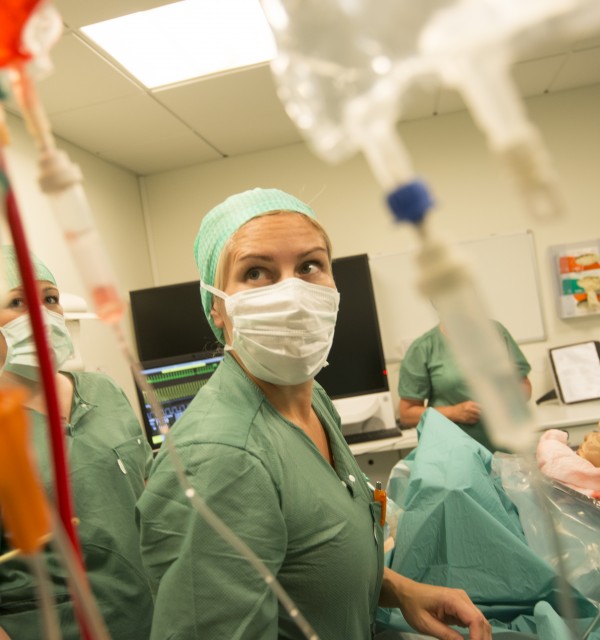En bachelor i sosialt arbeid fra UiS gjør deg godt rustet for å forebygge, løse og redusere sosiale problemer for enkeltpersoner, familier og grupper i samfunnet.
3 år, 6 semestre
180
87
2024: 47,6 / 43,2 (ORD / førstegang)
15. april 2023 via Samordna opptak

Om studiet
- Bli sosionom: Bacheloren i sosialt arbeid gir deg yrkestittelen sosionom. Som sosionom jobber du med mennesker i alle aldre og livssituasjoner.
- Lær å hjelpe andre ved å forebygge, redusere og løse sosiale og personlige problemer. Du utvikler ferdigheter som styrker andres ressurser og hjelpe dem med å mestre egne liv.
- Test det du lærer i praksis. I fjerde semester har du 22 ukers praksis. Da lærer du å etablere kontakt, utrede og ta beslutninger sammen med dem som søker hjelp.
- Ta emner i psykologi, sosiologi, sosialrett, samfunns- og velferdspolitikk og sosialt arbeid. Dette gjør deg godt rustet til å jobbe med enkeltpersoner, familier og grupper i ulike sammenhenger.
- Vis engasjement for mennesker: Som sosionom må du ha et sterkt engasjement for andre mennesker, vise respekt og samarbeide med brukere i ulike livssituasjoner.
Dette studiet er underlagt forskrift for skikkethetsvurdering.
Foreleserne er utrolig flinke til å engasjere. De gir mye av seg selv og drar deg inn i studiet og gjør det spennende. Alle kan jo stå og lese fra en pensumbok, men det er noe annet når de forteller fra egne erfaringer og genuint vil at vi skal lære.
Hva kan du bli?
Bachelorgraden i sosialt arbeid gir yrkestittel sosionom. Da kan du jobbe i:
- NAV
- Barnevern
- Spesialhelsetjeneste
- Kommunal omsorgstjeneste
- Rusomsorg
- Migrasjon
- Kriminalomsorg
- Skole og fritidstjeneste
- Ideelle organisasjoner
- Private bedrifter som tilbyr sosial- og omsorgstjenester
Videre utdanning
Bachelorgraden i sosialt arbeid kvalifiserer blant annet til:
Det er noe helt annet å gå fra å lese om å møte mennesker til å faktisk møte mennesker. Møtene påvirker deg definitivt. I møtet med mennesker bringer vi oss selv inn i møtet, og noe skjer mellom oss.
Learning outcomes
All study programmes at the UiS have a set of defined learning targets. Read more about the learning outcome for this study programme.
After successfully completing the bachelor’s degree, social workers will have theoretical knowledge, profession-specific skills and general competence to practice professional social work.
Knowledge
- has broad knowledge about social work’s theory, methods and legal basis that targets individuals, families, groups and communities
- has broad knowledge about the relationship between social conditions and the life situation of individuals and groups
- has broad knowledge about welfare policy goals and instruments, and their significance regarding social work practice
- has broad knowledge about conditions for coping and development in children and young people, and about caring skills and various forms of neglect
- has knowledge about the inclusion of marginalised groups in civil society and work
- has knowledge about the status and rights of the Sámi people and other minorities in society
- has knowledge about social science methodology and about relevant research and development wor
Skills
- can apply academic theories in professional practice
- can apply different social science methods and legal rules in encounters with individuals, families, groups and communities
- can use child welfare methods and legal rules to work systematically in relation to children in a vulnerable care situation
- can work with the inclusion of individuals and groups in civil society and the labour market, and contribute to the development of local communities
- can acquire new knowledge and apply it so that it contributes to innovative thinking and innovation in the services
General competence
- has insight into people’s different starting points and vulnerability, values and lifestyles
- has insight into views of humanity, values and professional ethics in social work
- has insight into and can reflect critically on their professional role in relation to academic, institutional and political requirements in professional practice
- has insight into the exercise of power in society and in conditions that contribute to inequality, and can promote social justice and inclusion together with people in vulnerable positions
- can disseminate professional knowledge that promotes equality and diversity, and contribute to gender equality, inclusion, mastery and participation in all areas of society
Study plan and courses
Enrolment year: 2025
-
Compulsory courses
-
Introduction to social work’s platform of knowledge
Year 1, semester 1
Introduction to social work’s platform of knowledge (BSO101)
Study points: 15
-
Communication and interaction in social work
Year 1, semester 1
-
Welfare policy
Year 1, semester 2
-
Welfare law
Year 1, semester 2
-
Contextual social work
Year 2, semester 3
-
Child welfare work - focusing on children and families
Year 2, semester 3
Child welfare work - focusing on children and families (BSO202)
Study points: 15
-
Research Methods
Year 3, semester 5
-
Integrated application of knowledge in social work- work with professional issues
Year 3, semester 5
Integrated application of knowledge in social work- work with professional issues (BSO304)
Study points: 20
-
Critical reflexive professional practice
Year 3, semester 6
-
Bachelor’s thesis
Year 3, semester 6
-
-
Term 4 placement at UiS or Exchange study
-
Term 4 placement at UiS
-
Practical Studies
Year 2, semester 4
-
-
Term 4 placement at exchange study
-
Praksis
Du skal ha praksis i 22 uker på fjerde semester.

Når du er i praksis, skal du få erfaring med å etablere kontakt, undersøke, utrede, vurdere og fatte beslutninger i samarbeid med dem som oppsøker hjelp.
Du skal også være med på i samarbeidsmøter og få kjennskap til tverrfaglig samarbeid i tilknytning til praksisstedet.
Les om praksisemnet: Kunnskapsbasert praksis (BSOP20).
Les om praksis gjennom utveksling.
Internt reglement for praksis - Institutt for sosialfag (pdf).
Spørsmål om søking og opptak?
Slik søker du opptak (samordnaopptak.no).
På UiS kan du også søke på grunnlag av realkompetanse.
Kontakt oss
Send oss spørsmål om søking og opptak.
Søke om overflytting til 2. studieår?
Studenter som kvalifiserer til det kan søke om overflytting til 2. studieår.
Alle kunne hatt nytte av å ha sosialt arbeid i grunn, det er noe med det å forstå møtet med mennesker – det er et viktig grunnlag å ha med seg.
Student exchange
By going on exchange to one of our partner institutions abroad as part of your studies, you will have an opportunity to get a unique education. In addition to improving your career opportunities, you grow as a person and gain the ability to greater reflect on the topics you study as part of your degree.
Exchange semester
4th semester (supervised professional training).
As a student on the bachelor's program in social work, you have the opportunity to go on exchange in the 4th semester of your studies. This means that the exchange constitutes the professional training of your education. Exchange is a unique opportunity to gain international experience and to make your education stand out.
For more information on exchange, see UiS's exchange pages.
Exchange programme - supervised professional training
Through one of our partner institutions abroad, you will be offered an approved internship with a supervisor.
We offer two different types of internships abroad; through partner universities and directly to organsations. Those who go to universities abroad must follow this university's own supervised training course and the requirements set by this university. The partner university is also responisble for finding an internship for our students. Those who go to exchange under the auspices of organizations and foundations must be prepared to follow the internship program of the University of Stavanger. This includes participation in a pre-practice seminar (if possible) and submission of mandatory work requirements. You will be told which course you will follow well in advance of your departure.
All students who complete an internship abroad are assigned a contact teacher at UiS. Students abroad undertake to maintain ongoing contact with the person responsible for exchange and assigned contact teacher throughout the internship period.
The application process
The deadline for applying for an exchange is 1 September in the autumn before the supervised professional training.
Which institutions we get internships at may vary from year to year, and we therefore recommend that you choose based on which country you want to go to.
All applicants following the social work education must attach a letter of motivation in English to the application. Here you should write a little about yourself and your motivation for applying for an exchange. This letter will be forwarded to your place of exchange as a presentation of you. It can also be used in the distribution of internship places, if you and another student are competing for the same place and have the same score. Particularly relevant language competence can count in your favour.
Students going on exchange must have passed all 1st year exams on the program before they can travel abroad.
More information about the application process.
Kontaktperson
Academic supervision: International coordinator Andreas Håheim
Preliminary and final approval: Student Advisor Yri Helene Ljosdal
General questions about exchange: The outbound exchange guide in Digital student service desk
See where you can travel
Armenia
Yerevan State University
Australia
Central Queensland University
Belgia
Artesis Plantijn University College Antwerpen
Cuba
University of Havana
Finland
Vaasa Polytechnic
Hellas
The HOME Project
Romania
Concordia Humanitarian Organization
Romania
Inocenti Foundation
Sverige
Göteborgs universitet
Studentlivet i Stavanger
Kontakt oss
Department of Social Studies
Faculty Administration SV
Administration IS







